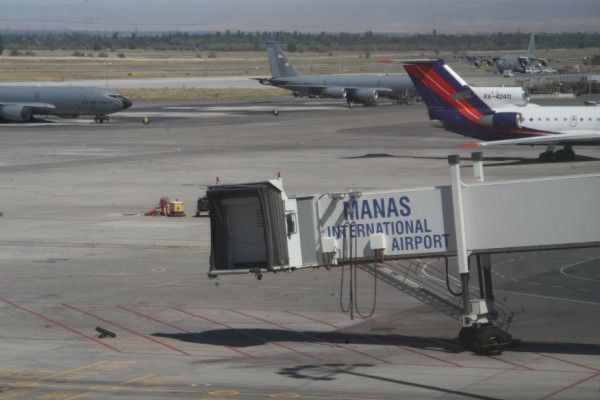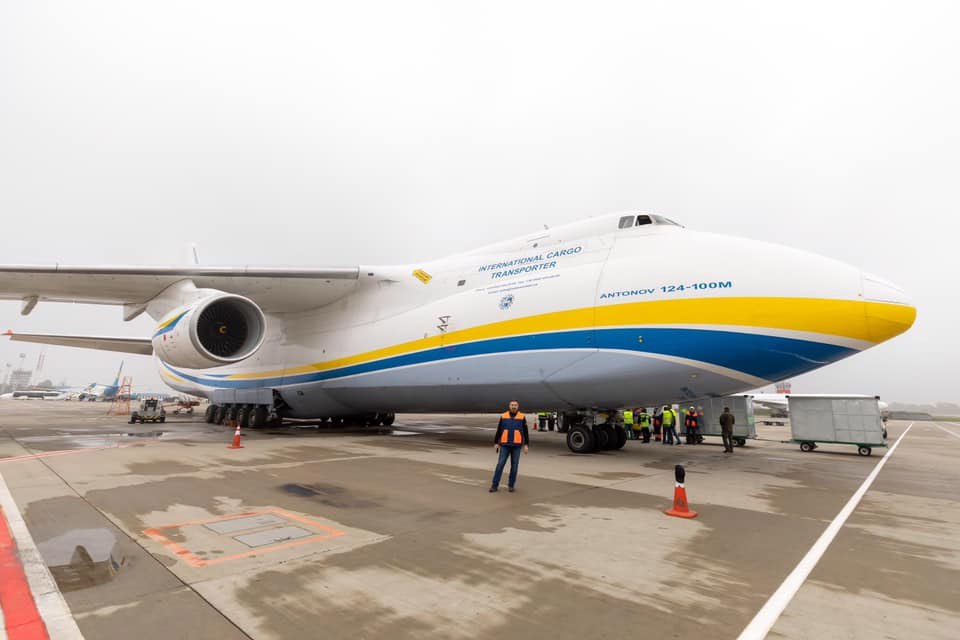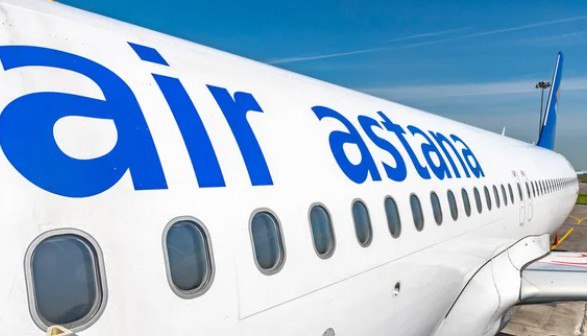BISHKEK (TCA) — Next week, Kyrgyzstan will declare a unilateral open skies policy and the fifth air freedom in the country.
The Kyrgyz President has signed a relevant law on amendments to the country’s Air Code. The law aims to develop civil aviation, increase passenger and cargo air traffic, and make international air routes and air tickets more accessible for Kyrgyz citizens and foreign tourists.
The freedoms of the air are a set of commercial aviation rights granting a country’s airlines the privilege to enter and land in another country’s airspace, formulated in the Convention on International Civil Aviation. The fifth freedom allows airlines to carry passengers, mail and cargo from one’s own country to a second country and from that country to a third country.
Kyrgyzstan is a mountainous landlocked country, and not a transit one for main international highways. Therefore, civil aviation is of particular importance here.
To develop tourism, Kyrgyzstan needs to increase passenger transportation by air. However, there are problems in this industry that require an early response.
Problems
In Kyrgyzstan, the civil aviation and the infrastructure of airports and airlines require intensive changes including the liberalization of the regulatory framework. Of the 11 airports, the Manas and Osh international airports provide 98% of passenger traffic, and the throughput capacity for the transportation of passengers and cargo of these two airports is used by 30%. Only two of the ten certified local airlines, Avia Traffic and Air Manas, make regular international passenger flights.
The civil aviation development is hindered by the small size of the domestic market, weak tourism development, incomplete compliance of the market participants with international standards, outdated airport and air navigation infrastructure, and lack of trained human resources. Besides, all of Kyrgyzstan’s airlines have been on the European Union blacklist since 2006.
Kyrgyzstan has air connections with nine countries, being the lowest aviation country in Central Asia. The average air ticket price is 39% more expensive in Kyrgyzstan compared to Kazakhstan and Uzbekistan.
Way out
The open skies regime will open the local market (airports and their ground services) to international airlines, the authors of the law and Parliament deputies say. The key open skies principles are not only the granting of rights to transit flights, but also non-interference of the government in pricing, destination routes and airlines, as well as the absence of restrictions on the types of aircrafts and their capacities.
The open skies policy will strengthen Kyrgyzstan’s civil aviation, satisfy the growing public and business need for affordable airfares and cargo transportation, ensure a high level of flight safety due to the aircraft fleet renewal, and provide financial opportunities for the modernization of airports and air navigation systems.
With the introduction of the open skies, the geography of flights will expand due to transit between Asia, Europe and the Middle East, and air ticket prices will drop by 40%, the law’s authors promised.
Expert opinion
Local airlines are not against the open skies policy, but it should be introduced gradually to preserve the domestic civil aviation, said Daniyar Arynov, Air Manas deputy director.
Kyrgyzstan is a small, poor country with a population of just about 6 million, and the aviation market can only be developed through an increase in transit passengers due to the liberalization of air traffic.
“We are often asked why we are not updating the air fleet. But until Kyrgyzstan is excluded from the EU blacklist, the prices of aircrafts, as well as the amount of insurance premiums, will be several times higher for our airlines than for countries not on this list,” Arynov explained.
It is important that all stakeholders understand the implications of this innovation. There is no mechanism to protect domestic air companies so far, Mamat Nazarov, a civil aviation expert, said.
When domestic air carriers say they need the state protection, this is perceived as a dependency approach. It is necessary to support the domestic civil aviation with benefits, so they would be in equal positions with foreign companies that will enter the market.
Some MPs opposed the initiative, fearing that it would “kill” the domestic airlines because small Kyrgyz airlines cannot compete with large international ones.
Uzbekistan
An open skies regime will be introduced in the Nukus International Airport in the capital city of Karakalpakstan, Uzbekistan, UzDaily.uz reports.
This regime will operate from the beginning of the IATA (International Air Transport Association) Summer-2019 schedule to the end of the Winter-2021/2022 season.
Foreign airlines designated in accordance with the Intergovernmental Agreements on Air Traffic will fly to the Nukus Airport without limiting the frequency of flights, without the right of the fifth air freedom.
It is also planned to introduce the open skies policy at the international airports of Andijan, Nukus and Navoi, Gazeta.uz reports. According to the Presidential decree on the inbound tourism development, the Karshi airport will be removed from the Uzbekistan Airways National Airline and will be transferred to the external management introducing the open skies regime in its territory, including the involvement of low-cost airlines. According to the forecasts, the introduction of such a regime will allow to increase passenger traffic by 25-30%.
Several Russian and Turkish airlines are showing interest in flying to Karshi under the open skies regime.
Kazakhstan
According to the Ministry for Investments and Development of Kazakhstan, a pilot open skies project was introduced in Astana and new flights were launched in 13 directions in 2018.
At the end of last year, Kazakhstan’s President Nursultan Nazarbayev and President of Air Astana, Peter Foster, discussed the development prospects of Air Astana, Akorda’s press service reported. The foreign investor owns 49% of the Air Astana shares and the state transferred to it in trust management an additional 2% of shares.
Air Astana is the main carrier of the country. The company has done a great work over the years and has a successful image in the country, Nazarbayev said.
He ordered to create a budget airline on the basis of Air Astana, which would provide transportation services at lower rates.
In Kazakhstan, a pilot open sky regime was introduced for the period of the Astana EXPO-2017 international exhibition. All restrictions on flights of foreign airlines, up to seven flights per week, were lifted. At the end of EXPO, Kazakhstan’s Prime Minister Bakytzhan Sagintayev suggested to continue the experiment for Astana for the next year.
Since January 2017, nine new international routes from Astana have been opened, and the number of flights on existing routes has significantly increased, the Ministry for Investments and Development said. Transit passenger air traffic has increased more than 20-fold over the past seven years.
Currently, Kazakhstan and the United States are discussing the introduction of the open skies policy between the two countries, primeminister.kz reported.
The implementation of the Agreement on the air traffic between Kazakhstan and the U.S. implies the lifting of restrictions on flights between cities of the two countries, which will significantly increase the passenger and cargo traffic in the near future.
Tajikistan
The Government of Tajikistan has ordered relevant departments to take the necessary measures to establish an air link with Armenia, News.tj reports.
Earlier, the presidents of Armenia and Tajikistan agreed to consider the possibility of launching a direct flight between the two countries.
Armenia is ready to give Tajikistan preferences in the framework of the open skies policy implemented in Armenia.
Armenia introduced the open skies policy after the bankruptcy of the Armavia national airline in 2013. Over the past two years, Armenia opened 12 new international routes involving 12 airlines.









